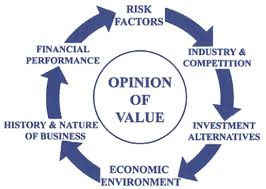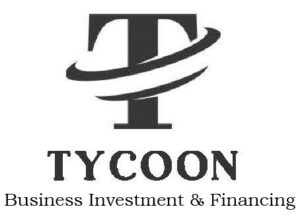Determining the Market Value of a Company
BUSINESS VALUATIONS:
Valuing a business is a critical part of our activity. Since TYCOON has been directly and indirectly involved in the sales or financing of different variety of businesses, we have developed different methods of analyzing and appraising the businesses.
Only the marketplace can determine what a business will sell for. Actually, the fair market value of a business is a result of mutual agreement between buyer and seller, with each acting prudently, knowledgeably, and for self-interest and assuming that neither is under duress.
In our experience, formulas with rule-of-thumb multipliers, which are derived from the marketplace, are a commonly acceptable base of business valuation for lenders and courts of law. Multiplier formulas are easy to use and provide a uniform guide and market comparisons. A proper valuation of a business will go beyond formulas and include a comprehensive review and analysis of different elements, as follows:
Valuation will help the seller not sell their business underpriced, and also help the buyer not buy a business overpriced. Valuation will help to determine the amount of loan the business can qualify for.

Common factors that influence the value of a business:
a. Cashflow trends: At least three years of financial statement of the business (Tax return, P& L, and Balance Sheet).
b. Appearance of facilities: Condition of business, equipment, and how merchandise is displayed.
c. Competition: In today’s business world, the economic environment is more powerful than ever. The mere announcement that a major competition is planning to enter the market can kill the value and marketability of existing similar businesses.
d. Condition of merchandise: Usually, the dollar amount of the inventory will not be considered in the valuation of a business and will be priced separately on the day the transaction is closed. However, if merchandize appears outdated or soiled or there are too many slow-moving items, this may be indicative of the overall condition of the business.
e. Covenant not to compete: In the valuation of a business, sometimes a non-competition covenant is an important issue.
f. Ease or difficulty (zoning, permit, license, environmental law) of entering a particular industry has an impact on the value of a business.
g. Local, national, and even international economic trends should be considered in the valuation of a business.
h. Particular industry of which the business is part might affect the valuation of the business.
i. In the valuation of a business, lease terms and conditions are an important issue.
j. Location of a business is always important in the valuation of a business.
k. Longevity: As a general rule, the longer the business has been established, the greater its potential for a positive value.
l. Ownership of premises: Ownership of the premises occupied by the business, particularly where location is important to continued success, can be important because it assures security of location.
m. Pricing policy of services and products and the quality of the product or service are always important factors in the valuation of the business.
n. Repeat patronage: A business with repeat patronage will tend to be more valuable than one that depends on more transient customers.
o. Reputation of business: Business reputation depends on the ability or reputation of the owner or on the personnel and management who remain with the business.
p. Return on investment: What rate of returns would the potential buyers be looking for in this type of business?
q. Sales trends: Previous sales trends of a business are important factors in the valuation of the business.
r. Structure of transaction: Term of the sales, amount of down payment, qualification of the business for a bank loan, and owner’s willingness to take back a note.
All of the above elements are examined carefully, and then the business value is determined.
